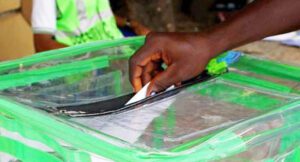Sudan war: Govt agencies can do better in evacuation of Nigerians
Weeks after boisterous fighting broke out between two factions of the Sudanese government, stranded Nigerians trapped in that country in a progressive report began to arrive home.
Following different tardy movements to rescue people from the war-torn country, it’s crystal clear that a meaningful and progressive solution has finally been adopted to evacuate Nigerians to their dear nation.
Since the beginning of the ugly incident in Sudan, measures have been set to rescue people to their countries, in which progressive reports in Nigeria account the first, second, third to fourth batch arriving in less than three weeks.
The latest batch of 422 Nigerians fleeing the fighting in the Sudan arrived Abuja, Nigeria’s capital, yesterday.
Reports show that the figure consists of 102 persons aboard a Tarco Airlines flight which departed Port Sudan and another 322 Nigerians onboard an Asman Air flight from Aswan, Egypt.
The figures make up the fourth batch of returnees to be airlifted by the Federal Government from Sudan.
It was gathered that returnees left Port Sudan International Airport around 5:25 am on Sunday and landed at the Nnamdi Azikiwe International Airport around 12:40 pm.
They were received at the Nnamdi Azikiwe Airport by officials of the National Emergency Management Agency (NEMA), the Nigerians in Diaspora Commission (NIDCOM) as well as security officials.
The previous batch of 131 Nigerians comprising 123 adults and eight infants arrived from Sudan aboard Tarco aircraft marked B737-300 from Port Sudan International Airport during the weekend.
The evacuees were warmly received by Chairman/CEO NIDCOM, Hon. Abike Dabiri-Erewa; permanent secretary, Ministry of Humanitarian Affairs, Dr Sani Gwarzo; a representative of the Minister of Foreign Affairs, Mr Mustapha Habeeb the Director General of National Emergency Management Agency (NEMA); representative of the refugees commission, Mrs Iman Ibrahim as well as other stakeholders who provided logistics support like the Nigerian Immigration Service, Dangote Foundation, MTN and Hajia Asmau Yerima Mohammed representing the Association of Parents and Guardian of Students in Sudan.
The post-trauma counselling and psycho-social treatment are planned by NiDCOM, with the Ministry of Health, and Refugees Commission in partnership with the Aliko Dangote Foundation.
Most of the students interviewed regretted the war situation in Sudan and thanked the Federal Government for coming promptly to their rescue.
They also pleaded with the government to hasten the evacuation of their colleagues still trapped in Sudan.
Evacuating one’s citizens from another country, regardless of the circumstances, is invariably a diplomatic function that is best handled by Nigeria’s Ministry of Foreign Affairs and its embassies and consulates across the world. In the extant case, however, NEMA and the Humanitarian ministry got ahead of themselves, to the extent that, Nigeria’s Ambassador in Sudan, Safiu Olaniyan, resorted to self-help to clarify that it is the Ministry of Humanitarian Affairs and NEMA, not he and his embassy, who were in charge of an evacuation that is otherwise his job description and happened directly in his immediate location.
The Ministry of Foreign Affairs must also wake up to its duties. All too often, our foreign embassies pass themselves off as either simply unwilling, or unable or rather too slow to stand for Nigerians when they find themselves in danger abroad. Indeed, the most vulnerable person on earth may be a Nigerian in another country, simply because Nigeria’s embassies and consulates have not developed ways of connecting with Nigerians in ways that make them feel protected, and therefore, proud to be Nigerian.




